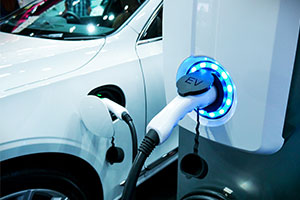Electric cars have been around for over a century, and yet they are only just beginning to become a driving force in the industry. With cars rapidly changing, thanks to technological advances, autonomous cars are expected by 2020.
An all-electric car future, how likely is it?
It’s likely to take time but there is an expectancy that an all-electric car future is going to happen. Ministers have been informed that most new cars will need to be electric by 2030. With a 27% increase in electric car purchases, compared to previous years. If the government is to reach a target of 3 out of 5 cars to be electric within 10 years more needs to be done to make this a reality.
The buzzword at the Frankfurt Motor Show in 2017 was ‘electrification’. This meant that every car of a certain brand will be available in an electric version. While there are currently models such as the Smart car available under its umbrella, Mercedes’ parent company, Daimler, announced at the German event that they too would have electric versions of its own fleet by 2022. Why not check out one of the many Mercedes A Class Finance plans that they have? There’s plenty available! However, this didn’t necessarily mean that they would be a fully electric battery-powered vehicle, as the term could also refer to hybrid models.
When can we expect an all-electric future? 
It’s right that protecting the environment has become a worldwide issue. Whether it’s cutting back on unnecessary plastic usage, or cutting back on emissions, creating a greener environment is at the forefront of our plans. Purchasing an electric car can personally save you money in the long term and Go Ultra Low also claims that a full charge could cost as little as £3, meaning it may cost approximately 3p per mile.
One key way to improve our air quality and meet climate goals is by having electric vehicles and new diesel and petrol cars are planned to cease production by 2040. It has been proposed that these vehicles will be off the roads altogether 10 years later. With emission charges already in place in London, other major motorways, including the M4 and M32, are expected to start holding pollution taxes by 2020, meaning that you’ll need to switch to electric cars to avoid these costs.
What is being done to accommodate this?
There were approximately 12,000 electric car charging points in the UK in February 2017. By July 2018, that figure had risen to over 17,000 across 6,000 locations and by January 2019, Zap Map reported that that figure was closing in to the 20,000 mark. Worldwide, there are over two million ports, but for the public to go fully electric, this number will have to dramatically increase.
Not only that, but there will have to be a lot more batteries produced, and the power to charge them would have to be generated somewhere. EV charger installation is now a big part of the action plans for power companies as they bid to provide a low-carbon connection gateway.
Why are electric cars popular?
There’ll always be the power to utilise thanks to electricity being increasingly provided by renewable sources. Also, the price of electric cars is steadily coming down, making the initial outlay a lot less hefty. They also need a lot less maintenance care, as they have 10-times fewer moving parts to cars powered by diesel or petrol.
As electric cars steadily increase in numbers as the government continues its push for the ‘electric takeover’ it’s evident that, one day, we are likely to see an all-electric future. Whether it happens in the time frame proposed, we will just have to wait and see!
Take a look at our article on the Electric car revolution which is set to create over 1 million new jobs




